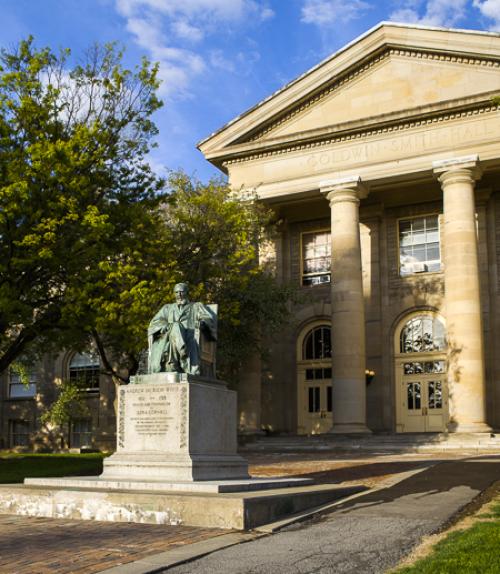Tackling challenges in understanding biological processes require sophisticated dimension-reduction techniques that are biologically meaningful, computationally efficient, and allow uncertainty quantification, says a Cornell Research article. Together with other Cornell researchers, Andrew G. Clark, the Jacob Gould Schurman Professor of Population Genetics, is developing a statistical approach that incorporates prior biological information, supported by a grant from the National Institutes of Health.
"Genomics, proteomics, and metabolomics are creating new opportunities to understand complex, dynamic biological processes such as organ development, immune response, and disease progression," says the article. "Recent experimental advances generate huge biological data sets, making it possible to investigate these biological systems in a data-driven fashion at high temporal resolution."
Read the story on the Cornell Research website.




